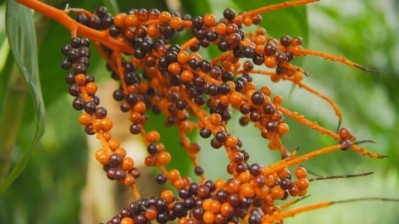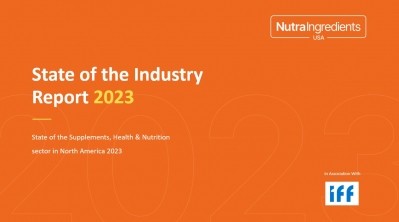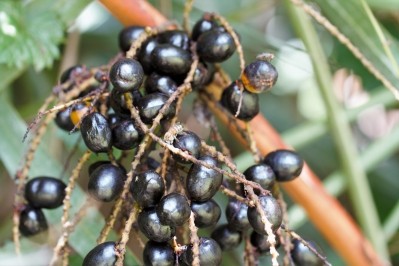2022 Saw Palmetto harvest largely unaffected by Hurricane Ian
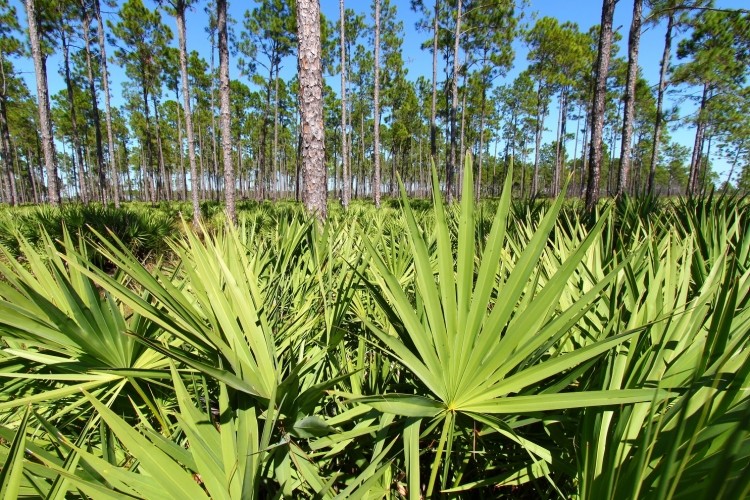
Hurricane Ian hit Florida last September, with the Category 4 hurricane bringing 20 inches of rain and wind gusts of over 200 mph. The hurricane caused widespread devastation across the state and is ranked as the third costliest storm on record in the United States, at $112.9 billion, and the costliest in Florida history, according to the National Oceanic and Atmospheric Administration (NOAA).
This coincided with the harvest for Saw Palmetto (Serenoa repens), leading us to question its impact on the 2022 supply.
"The hurricane disrupted the saw palmetto berry harvest season for sure," said Ed Fletcher, president and COO of Native Botanicals, Inc.. "It came during harvesting so most of the early crop, which is lower in fatty acid content, utilized for more of the powdering business was not impacted as much as the later crop, with higher fatty acid content, utilized for extraction. Last year's crop is gone, sold. So expect increased demand this year to make up for last year's shortages."
On the other hand, Michael McGuffin, President and CEO of the American Herbal Products Association (AHPA), said it is his organization's understanding that the overall harvest in 2022 was not too disrupted by Hurricane Ian. "Hurricanes are not uncommon in Florida, so the saw palmetto industry can generally handle one hurricane during the bloom-set to harvest period," said McGuffin.
“In addition, a single hurricane usually only affects one section of the state, and the crop is harvested from southern Florida all the way to the Georgia border – in fact, some collection occurs in Georgia.”
Supply chain
Valensa International, headquartered in Florida, is the producer of the Saw Palmetto-derived USPlus pure lipidosterolic extract. Umasudhan Pal, Valensa’s CEO, told us that Hurricane Ian didn’t cross paths through the company’s drying (North Florida) and harvesting sites, and the harvesting activities had shifted to the North of Florida for that week.
“It did go past our ultra-high pressure supercritical CO2 extraction site in Central Florida,” said Pal. “It is a well-constructed strong structure and built to withstand such winds and rains. We have backup locations for manufacturing and multiple warehousing operations in the US for risk and contingency planning.”
Valensa implemented its GEMS Supply chain excellence program in the state of Florida in 2018, which Pal described as “the most reliable fully integrated supply chain for Saw Palmetto.
“Valensa's robust crop mapping, crop monitoring, and strategic harvesting activities with strong local partners enable us to mitigate risks such as hurricanes that go through a certain path,” he noted.
“For the past three years, Valensa’s GEMS supply chain has stabilized supply and pricing for its key customers and brand partners. Valensa doesn’t participate in the open ‘street’ berry sourcing market that has poor practices. We have changed the supply chain to be more organized, and responsible, and work directly with harvesters and landowners to create a value chain where everyone has a commercial share and there is economic sustainability for stakeholders in Florida.”
Sustainability
The value of a sustainable, trusted, and reliable supplier like Valensa is highlighted by reports that the crop is threatened by shrinking acreage and climate change, as well as by its vulnerability to adulteration.
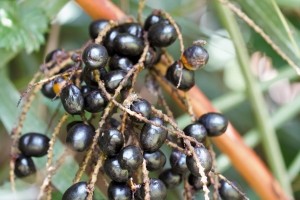
An extensive article about Saw Palmetto by the late noted botanical expert and photographer Stephen Foster and published in 2021 in HerbalGram, noted that higher average temperatures may affect productivity, either through fruit drop from heavier than usual rains or from fungus.
In addition, sea level rise associated with a warming ocean and melting ice caps could waterlog as much as 9% of the potential habitat in the coming century.
The botanical is also “particularly vulnerable to adulteration”, said Dr Stefan Gafner, Chief Science Officer of the American Botanical Council and Director of the ABC-AHP-NCNPR Botanical Adulterants Prevention Program (BAPP), during a 2020 webinar hosted by the Sustainable Herbs Program.
According to a 2019 BAPP Laboratory Guidance Document (LGD), admixture or substitution with berries from related species of the palm family, such as dwarf palmetto (Sabal minor), queen palm (Syagrus romanzoffiana), and Everglades palm (Acoelorrhaphe wrightii) appears to be rare.
More common is the substitution or dilution of saw palmetto extracts with vegetable oils or designer fatty acid blends from plant or animal sources to attempt to mimic saw palmetto’s fatty acid composition.
“One of the reasons is that it’s relatively easy to mimic the chemical composition of Saw Palmetto extracts,” said Dr Gafner. “Most people quantify fatty acids. These are chemicals that you find in all vegetable oils, so if you use sunflower oil or a coconut oil or a canola oil so if you mix and match them at the right ratios you get something that looks like the fatty acid profile of saw palmetto.
“Also, the risk of getting caught is relatively low. Sunflower oil or coconut oil don’t represent a health risk, so there’s not really a big incentive for authorities to go after saw palmetto adulteration. I haven’t seen much enforcement.”
Top selling botanical
Dietary supplement products containing saw palmetto berries and/or their extracts are among the top-selling botanical dietary supplements in the United States — ranking 18th in the mainstream market (supermarkets, drug stores, grocery stores, etc.) and 17th in the natural foods channel with a combined $33.85 million in sales for both channels, according to the latest HerbalGram Herb Market Report for 2021.
